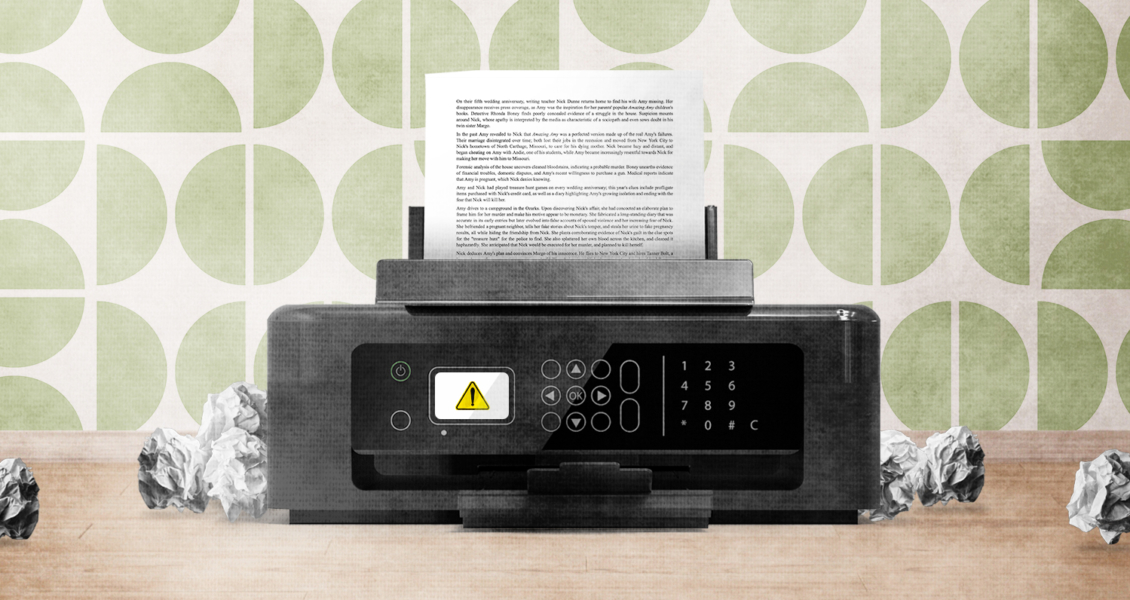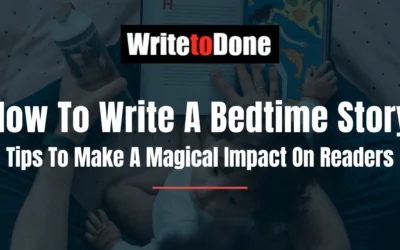I Don’t Have The Motivation To Write My Essay , What To Do Now?
Table of Contents
Are you there staring at your essay? Not even sure of where to start from, not to talk about completing it. Sometimes it feels like you have hit the wall, and you don’t have the motivation to write.
If you are demotivated to start your essay writing and are overwhelmed, ask yourself, ‘how do I write my essay’ or ‘should I possibly get help to write my essay online?’. You are not the only student who has found themselves in this situation.
Writing can be so thrilling when we have all our thoughts well penned down in our writings. But sometimes, our minds blank out, finding it difficult to write. I have discovered and organized a list of tips in this article that will help you be motivated and enthusiastic about starting working on your essay.
Watching this video before reading the post really helps you:

Tips for finding the motivation to write your essay
Writing an essay is part of college life; however, many students dread writing because having a good essay requires a lot of research, time, and concentration. After facing some challenges on this part, many students are quick to “throw in the towel”.
1. Know the cause of the lack of motivation
The first step to staying motivated is to ascertain why you are not motivated to write your essay there are many reasons and factors that could have possibly led to these, some of which include;
- Lack of interest in the Essay topic: this often happens when the given essay assignment doesn’t interest you.
- Lack of confidence: When you don’t trust your writing abilities and are already viewing your essay as “a piece of trash”, this can jolt your motivation.
- Feeling overwhelmed: Because of the nature of essay writing, which requires a lot of effort and time, it can take over your mind and make you feel intimidated. Hence, make you lose the motivation to write your essay.
2. Choose an interesting topic
One of the primary ways to keep your motivation to write an essay is to choose a topic that you find interesting. Some articles don’t afford you the luxury to select the subject, but when you do, don’t choose a topic you aren’t interested in.
Writing an essay on a topic that interests you is enough motivation because you genuinely want to know more about what you are writing about, making it more fun and exciting.
3. Minimize distractions
Create the right environment by shedding off extra tasks that take most of your time to focus on writing your essay, including music, noise, your mobile device, and the internet. You can block some websites that might distract you.
4. Find a conducive environment to write your essay
Find an environment that is convenient and comfortable to write your essay. The less distracted you are, the better it is for you to focus on what you want to write, getting a serene, quiet, and clean place that won’t drain your energy due to discomfort.
The feeling of being relaxed and in a conducive place would be an excellent motivation for you to write.
Read more: When You Focus On The Good The Good Gets Better
5. Gather all the necessary materials you need to write the essay
Have your necessary tools and resources at hand when writing your essay, including articles, writing materials, or your computer system, as this also eases unnecessary stress that can demotivate you.
You can also plan to reward your effort with snacks or coffee; you can have them available also as you will need to be energized and comfortable as you write your essay.
6. Break down the writing process
You don’t necessarily have to rush the whole essay assignment at once; we spoke earlier about being overwhelmed by the essay assignment as one of the reasons for being demotivated. So, take it a step at a time.
To avoid being intimidated by the workload of doing it all at once. You can break down the writing process by setting aside time for research, writing, editing, and proofreading. Don’t rush to finish the essay; you will maintain motivation if you take it gradually.
7. Create an outline
Creating an outline helps you write clearly and efficiently; it gives a sense of direction and gives your writing a focus.
An essay comprises the introduction, body, and conclusion.
The outline does not have to be extensive but should include the main points your essay will make. It helps you follow a particular format and save the article from rambling.
8. Divide the word count for each section of the essay
You should determine the number of words in each section of the essay.
For instance, in an essay of 1500 words, I would have 150 words for my introduction and conclusion and 300 words each for four body paragraphs.
Breaking down the number of words for each section depends on your choice. The closer you get to each word target for the units, it also serves as motivation and encourages you to continue.
9. You don’t have to begin with the introduction
Yes, in every essay, the introduction section comes first. However, it doesn’t necessarily need to be written first; people often get stuck at the introductory part, not knowing what to start with.
The introduction section is an essential part of an essay, so you tend to face a lot of pressure because you have to ensure you start with something that can get your reader’s attention.
It’s not a bad idea to start with the body paragraphs before you decide to write the introductory part. In fact, writing the introductory part after the body makes it relatively easier.
10. Take breaks
Taking regular breaks is quite crucial in staying motivated. Take a break from your writing and do other activities aside from writing, like taking a walk down the street; it helps refresh your mind.
You can also get a few drinks and snacks to keep your energy level up; you are advised not to consume too much as it can slow down your pace.
11. Reward yourself
In every field, reward boosts motivation. Creating a reward system for yourself when you finally complete the essay will motivate you to push yourself to write the article to get the compensation at the end. It can be something as simple as eating at your favorite restaurant or going to a cinema.
We also have found this awesome podcast that teaches you how to start writing an essay:
Getting a writer motivated to write an essay might be pretty tricky, but it’s not impossible, especially if it’s not a topic of interest. However, follow the tips we have put together for you above on how to be motivated and make it easier for you to approach your essay efficiently.
Written by Saeed Ahmadi
Who am I? A blogger, mindset mentor, personal development coach, content creator, SEO Specialist, digital marketer, entrepreneur, reader by night, and writer by day.
Mindsetopia, my brainchild, is more than a platform, its my vision of a world where everyone has access to the tools and knowledge necessary for personal growth and self-growing.
What really makes me excited is helping people to unlock their true potential. So,I am here to give you the kick you need to change your mind and then your life :)
Leave a Reply Cancel reply
Your email address will not be published. Required fields are marked *
Save my name, email, and website in this browser for the next time I comment.
By using this form you agree with the storage and handling of your data by this website. *

My Top 35 Don’t Treat Me Like an Option Quotes in 2024

When You Focus On The Good The Good Gets Better
© 2024 the MINDSETOPIA.

Recommended for you
5 things to do that are better than writing a paper, how to prepare for the library: finals edition, how to gain motivation to write an essay: 5 proven tips, it's that time of the year...time to push through and finish strong.

You've been working hard all semester, no doubt, between projects, tests, labs, and whatever extracurriculars and other obligations you have going on. Maybe you're still as starry-eyed, impassioned, and ready-to-roll as you were at the beginning of the semester (in which case, all the more power to you!), but chances are that you're starting to feel a little run down and a little less motivated to put down school-related keystrokes.
You're not lazy or a bad person for this--burnout happens to the best of us, however studious and hard-working we may be. Those essays still have to be written, however, motivation or not. Take a break (as you're probably doing right now), take a breath, take whatever below works for you (most of this you've heard before, but maybe you need the reminder), and then get on to it!
1. Break it down into small, manageable steps.
You really don't feel like writing that 2000 word term paper with ten outside sources and proper citations right now...but do you feel like, say, finding five of those ten sources right now? Do you feel like writing your introductory paragraph right now? Your outline? Your thesis statement?
Going from a blank document to a journal-worthy publication can feel like going from Netflix and nap to the Boston Marathon, but going from Netflix and nap to 15 minutes on the treadmill twice a week, then from 15 minutes on the treadmill twice a week to 30 minutes on the treadmill three times a week, then from that to an hour on the treadmill 4 times a week, and so forth until you hit that marathon burns a little less.
Likewise, your finished, final essay is a marathon that's 6 months away (okay, maybe a week or two), but today, right now, your goal is to walk for 15 minutes. What small task do you have the time and energy to do right now? Just one paragraph? Just one outline? Just one source?
Whatever you can do right now, even if it doesn't seem like a lot right now, is one less thing that you'll have to do the next time you sit down to work on this. If you work on your essay for just 15 minutes a day, you'll have put in a whole hour's worth of work in four days (which, okay, doesn't sound as accomplished put that way, but that's an hour more of work than not having done anything for a week out of dread and the lack of wherewithal).
The even better news is that working often begets working. Maybe you only set out to do a brief Roman-numeral outline, and maybe that's all you really needed to have done for this moment . But maybe you're making that outline and you realize that you don't really know what you want to say in paragraphs 1, 3, or 5, but you know exactly what's going on in paragraph 2, so you put so much detail into that part of the outline that you start writing in sentences with transitions and all of that, and, before you realize it, you have a fifth of your paper typed out.
2. If you need help breaking it down, try Pomodoro (or any similar technique).
Named after the Italian word for "tomato" (the shape of the timer that the original practitioner used), the Pomodoro technique is a way to structure your work time and break times.
Work for 25 minutes with no distractions; finish as much as you can. Mark an "X" on a log for working for 25 minutes. Take a break for 5 minutes; do something fun, do something relaxing, but don't do any work. Work for another 25 minutes. 5 minute break. Work 25. Break 5. Work 25. Break 20 (after having done four "pomodoros," or 25-minute productivity sessions, you deserve it).
Repeat for as long or as little as time and willpower permit. Of course, feel free to modify work times and break times to match you--if you need to break every 10 minutes, go for it, and if you work better powering through in hour-long increments, go for it. Just remember that breaks reset the mind, and the promise of a break resets your will to keep dragging through that work time.
And, yes, there's an app for that, for both Android and Apple (and probably any other interface with an app store, too). In fact, go to the "Productivity" section of any app store and you'll find timers, planners, lists, mind-maps, brainstorming tools, and calendars galore. Some of these may work well for you; some that get 5 stars from 3 thousand reviewers may not do you, personally, an ounce of good. Find what works for you, whether that be an app or any other time management method.
3. Remember your end goal.
The end goal of writing that paper is to write about everything that the professor and/or rubric mandates while meeting any word or page limit and following the style guide for your course, yes, but there's a larger reason why you're doing this. This essay is a step towards completing a class, a class that hopefully is helping you develop the skills, knowledge, and connections you need in order to perform in that dream career or hobby that you'll pursue once you pass enough of these classes and obtain that coveted sheet of paper known as the degree.
So while you might not be able to muster the give-a-dang about an essay analyzing [Insert Socio-Historical Context Here] in [Insert Literary Work Here], you might find it a little easier to care about, say, paying off your parents' debt or saving lives with a scalpel or changing the world with your ability to reach others through words, television, music, art, education , what-have-you. Remember why you were so excited to get accepted into your school and your program; remember what you wanted to be when you were in kindergarten and how much of that kindergartener was still in you when your high school guidance counselor asked you the same question. Remember why it's worth it, and remember that this essay in front of you, while by no means as important as whatever comes next, is crucial to you getting to that place you want to get to.
4. But don't worry yourself numb.
Maybe what's burning you out isn't that you find it hard to care; maybe you care so much that you want everything to be the absolute best, and you know that you're tired and that you don't do your best work when you're tired, so maybe you're waiting for more energy, more motivation , more inspiration to come around so that you can put your absolute best into that essay and into whatever that larger dream entails.
The problem is that you don't have the time to wait. By all means, if you're so tired that you can't keep your eyes open, go get some rest, and if you're so overworked that the room is spinning and your head is throbbing, please take a break, but you eventually have to get started, even if you don't feel as confident or as eloquent as that final essay needs to be.
It's a lot easier to carve a good essay out of a not-so-well-written rough draft than it is to carve a good essay out of a blank document. You can edit later, but you can't edit something that doesn't exist. A rough draft doesn't have to be perfect--it just needs to be there.
The final draft doesn't have to be perfect, either, though it's admirable to want it to be as a good as possible. Remember that while this essay is a part of passing your class, it is (probably) not the whole class; unless you do something silly like plagiarize or steal (don't do that!), this one essay isn't going to make or break your future. You want to do as well as you possibly can, sure, but remember that a shaky essay you've been shakily writing for a week typically does better grade-wise and content-wise than a frantic essay that you threw out the night before because you waited for the "right moment" that never came, and even that last-minute essay is better than no essay at all and, given steep Late Work policies, is probably better than turning in your essay late. One essay does not a scholar make...and chances are that it won't come out as poorly as you fear it might, anyways. Breathe in, breathe out, and just try your best. That's all you can really given.
5. Look after your mental health.
Everything above is easier said than done, but if you absolutely, positively cannot bring yourself to work on the essay out of paralyzing fear of failure or having zero ability to muster any give-a-dang whatsoever, then it may be time to check in with a counselor and see if there may be some underlying anxiety or mood disorder or another mental health condition that's influencing your ability to be productive. Some degree of worry, some degree of lethargy, and some degree of slipping up from time to time is to be expected, of course, but if your grades are suffering or if it has become a lot harder for you to function, then this is something that needs to be looked into, and your school's counseling department or another trusted mental health professor is a great place to look into it. Mental health conditions tend to peak around college age--around 1 in 5 college students (if not more!) are currently dealing with a mental illness. It's not a sign of weakness; what it is, though, is treatable, or at least manageable, and this management can make the day-to-day things like essay writing a lot easier to deal with.
So, after you evaluate your need for mental health services and act accordingly , reflect on what your end goal is, and get to work. Maybe "work" is just a few small tasks for a few minutes each day, but little progress is better than no progress at all. Writing essays aren't always fun or easy, but you're writing them for a reason, and it's easier to get to writing if you actually, well, get to writing.
Seriously, though, you got this.
- 25 Phrases of Motivation for Writers ›
- Beat Procrastination: 5 Activities Better Than Writing A Paper | The Odyssey Online ›
Subscribe to our Newsletter
The great christmas movie debate, "a christmas story" is the star on top of the tree..
One staple of the Christmas season is sitting around the television watching a Christmas movie with family and friends. But of the seemingly hundreds of movies, which one is the star on the tree? Some share stories of Santa to children ( "Santa Claus Is Coming to Town" ), others want to spread the Christmas joy to adults ( "It's a Wonderful Life" ), and a select few are made to get laughs ( "Elf" ). All good movies, but merely ornaments on the Christmas tree of the best movies. What tops the tree is a movie that bridges the gap between these three movies, and makes it a great watch for anyone who chooses to watch it. Enter the timeless Christmas classic, "A Christmas Story." Created in 1983, this movie holds the tradition of capturing both young and old eyes for 24 straight hours on its Christmas Day marathon. It gets the most coverage out of all holiday movies, but the sheer amount of times it's on television does not make it the greatest. Why is it, then? A Christmas Story does not try to tell the tale of a Christmas miracle or use Christmas magic to move the story. What it does do though is tell the real story of Christmas. It is relatable and brings out the unmatched excitement of children on Christmas in everyone who watches. Every one becomes a child again when they watch "A Christmas Story."
Everyone has experienced the feeling of wanting one thing for Christmas more than anything else in the world. For the young Ralphie Parker, played by Peter Billingsley, this gift is the Red Ryder B.B. gun. No matter how much he is dissuaded by adults, with warnings like “You'll shoot your eye out,” Ralphie wants no business with any other gift. His eyes are fixated on the gun and anything less than that under the Christmas tree would be a disappointment. The way Ralphie feels about the gun is real and relatable. Watching this movie brings out the child in every adult who spent the Decembers of their childhood being extra nice to further entice Santa Claus to bring them the item at the top of their Christmas list. While "A Christmas Story" follows a nine-year-old and his Christmas dreams, everyone who watches struggles along with Ralphie in his quest to get a gun from Santa Claus.
If getting the top item on the Christmas list is the highlight of Christmas for children, getting clothes is the low point. No child wants to get clothes. Ralphie is not the exception. One of the first gifts he opens is a pink fluffy bunny suit from his aunt. The unhappiness is palpable. Under pressure from his mother, Ralphie puts on the bunny suit and smears a half-hearted smile across his face. After given permission to take it off, the nine-year-old sprints like no other up the stairs to put back on his pajamas and resume opening up other gifts. To children, ripping off the gift wrapping and opening the box to see clothes is the ultimate letdown. Kids, like Ralphie, want nothing other than myriad different toys. "A Christmas Story" perfectly portrays this feeling. Kids watching pray that they do not find clothes under their trees, and their parents can sympathize as they were these kids years ago.
Finally, what makes "A Christmas Story" so great is that it shows that every Christmas cannot be perfect. While Ralphie did end up getting his Red Ryder B.B. gun, that might have been the only thing that went right for the family that day. Mr. Parker loved nothing more than a Christmas turkey. But when his prized possession was eaten by the neighbors’ dogs , all the light is taken from his eyes. He laments that, “The heavenly aroma still hung in the house. But it was gone! All gone! No turkey! No turkey sandwiches! No turkey salad! No turkey gravy! Turkey hash! Turkey a la king! Or gallons of turkey soup ! Gone! All gone!” Instead of canceling Christmas, the whole family takes a trip to the local Chinese restaurant for a Christmas duck. This famous scene is what makes "A Christmas Story" so great. It does not try to sell you a perfect Christmas. It shows the reality that while everything may not be perfect, if you are together with your family on Christmas, that is all that matters. After all, family is what the holiday is here for.
15 Thoughts Going Through Your Head Before Finals
Who isn't stressing out over finals right now.
As this semester wraps up, students can’t help but be stressed about finals. After all, our GPAs depends on these grades! What student isn’t worrying about their finals right now? It’s “goodbye social life, hello library” time from now until the end of finals week.
1. Finals are weeks away, I’m sure I’ll be ready for them when they come.
2. Wait, we only have a week of classes left before finals?
3. When are my finals even?
4. I hope the schedule for finals doesn’t interfere with my Netflix time.
5. Okay, now I’m stressing about finals.
6. When did we learn all this material? I wish I had been paying more attention in class.
7. Oh no, not another group project instead of a final.
8. I’ll just take a “quick” break from studying.
9. Why is that girl watching Netflix in the library right now? Isn’t she worried about her finals?
10. Ugh, I wish I was carefree enough to be watching Netflix in the library right now instead of studying.
11. I wonder what my final class grade would be if I didn’t do well on this final.
12. Is anyone else as stressed out as I am right now?
13. I need another chocolate bar. I wonder if i have enough quarters for the vending machine.
14. I can’t wait for this semester and for finals just to be over already.
15. Ugh, I hope I studied and know everything that I need to.
So as we're all studying (panicking) for finals, I wish you all the best of luck with your upcoming exams! And remember in a few weeks, we'll be back at home without a worry in our mind. The end is in sight.
My Favorite Christmas Traditions
'tis the season to be jolly.
It's the most wonderful time of the year! Christmas is one of my personal favorite holidays because of the Christmas traditions my family upholds generation after generation. After talking to a few of my friends at college, I realized that a lot of them don't really have "Christmas traditions" in their family, and I want to help change that. Here's a list of Christmas traditions that my family does, and anyone can incorporate into their family as well!
1. BAKE ALL OF THE COOKIES
Every year since I was a little girl, my mom and I would bake cookies for Santa on Christmas Eve. Here's a link to some awesome cookie recipes !
2. Make Gingerbread houses
This is a personal favorite of mine. My grandmother used to buy the standard Gingerbread kits but we would make our own icing and use our favorite candy as decoration. Of course, I would always end up eating a window or part of the roof off later when she wasn't looking (hehe).
3. Hallmark Ornaments
Okay, so I have to explain this one a little bit. There's a Christmas tree in my house dedicated specifically towards me. The ornaments are from my parents childhood, as well as mine. Every year my mom has bought 3-4 Hallmark Christmas ornaments of my choosing to add to the tree. It's really funny, because you can tell how old I was each year from the type of ornaments I would pick out (let's just say Barbie Princess was a big hit from 2000-2005ish).
4 . Watching Rudolph the Red Nosed Reindeer
It's my dad's favorite Christmas movie! This 1964 classic has been a hit in the James family for literally over 50 years. Honestly if you haven't seen this movie, I don't know how you could possibly have Christmas.
5. Christmas Eve Family Dinner
After the Christmas service at church, my family always comes over to my house to have a Christmas Eve dinner. We spend this time just enjoying each other, opening one present before Santa comes, and enjoying the true meaning of Christmas.
Although these traditions may not seem the most original, they mean a lot to me and Christmas wouldn't be the same to me without them. After all, Christmas isn't about how many presents you get or the long break you get from school. Christmas is about celebrating the birth of our Lord, Jesus Christ, and giving back to others. Merry Christmas everyone, and a Happy New Year.!
The 5 Phases Of Finals
May the odds be ever in your favor..
It’s here; that time of year when college students turn into preschoolers again. We cry for our mothers, eat everything in sight, and whine when we don’t get our way. It’s finals, the dreaded time of the semester when we all realize we should have been paying attention in class instead of literally doing anything else but that. Everyone has to take them, and yes, unfortunately, they are inevitable. But just because they are here and inevitable does not mean they’re peaches and cream and full of rainbows. Surviving them is a must, and the following five phases are a reality for all majors from business to art, nursing to history.
Phase One: The “I got this” phase
It’s a few weeks before finals, and you’re the good living life. You say to yourself: “Hey dude, let’s starting studying early and kill finals this semester.” For a few days you think it’s all good, and study a little here and there and are proud of yourself for starting early. Starting early is a great idea, but let’s be real; this stage is short lived.
Phase Two: The “I have time” phase
It’s maybe two weeks before finals and you think to yourself: “Hey dude, it’s two weeks before finals! We have time. Don’t panic. Relax. There’s so much time left!” All of the studying you started before stops, and late night Netflix binges have resumed. Why stress yourself out more than you have to now? Let’s just wait a little longer. It will so be okay.
Phase Three: The uncontrollable sobbing phase
It’s now the last week of classes and it’s hitting you hard. Your professor starts prepping you for the final and it’s like time stops: “What do you mean I have a week before class? WHAT DO YOU MEAN?” The anxiety starts to set in and life gets real, real fast. All those late nights watching Netflix are now catching up with you and while finishing the entire series of "House" in record time is impressive, it won’t get you a 4.0.
Phase Four: The “help me, I've fallen and I can't get up” phase
IT’S HERE. THEY’RE HERE. Late nights in the library become early mornings, and eventually the librarians know your entire life because you never leave that one table in the back and you’ve claimed it as your land. The copious amounts of study guides overwhelm your life, and at one point you start to question of your education is really worth this. But alas, you push through because...
Phase Five: The rejoicing phase
As you sit down to take your last final, you are praying that your brain does not turn to mush halfway through the exam. You scribble your last answer in the blue book and try not to run to the professor’s desk. You almost trip over countless backpacks and the nasty looks being shot at you from the poor souls who are struggling are burning a hole through the back of your head. This is it: the last exam of the year is in your hand, and you drop it on the professor’s desk and mutter “thanks, Satan” and practically skip out of the room. REJOICE! IT’S OVER. Congratulations, you’ve officially made it through finals. Until next year…
26 Things to Thank Our Roommates For
Who knows where we would be without them..
Where do we begin when we start talking about our roommates? You practically spend every moment with them, they become your second family and they deal with you at your best and at your absolute worst. They are there to make you laugh just a little harder, cry a little less and make each day a little better. We often forget to thank them for the little things that they do to make college even a tiny bit easier and more fun. This list of 26 things are what you should thank your roommates for right this minute and every day that you live with them.
1. Thank you for laughing at my jokes , even when they really aren’t funny.
2. thank you for singing unbearably loud with me all the time., 3. thank you for letting me vent to you for hours about anything and basically being my personal therapist., 4. thank you for ordering pizza with me at 2 in the morning., 5. thank you for all the movie days when we don’t feel like moving., 6. thank you for being my workout buddy everyday., 7. thank you for sharing your closets with me., 8. thank you for taking naps with me at random hours during the day., 9. thank you for cleaning our home with me when we absolutely need to., 10. thank you for all the rides when it’s late and you don’t want me to walk home alone in the dark., 11. thank you for studying with me in our kitchen when we didn't want to go the library., 12. thank you for making dinner with me., 13. thank you for helping with my hair, makeup and outfit every time we go out., 14. thank you for taking countless ugly pictures with me., 15. thank you for not judging me when i go too long without showering., 16. thank you for making our apartment feel like a second home., 17. thank you for being there through all of our boy troubles., 18. thank you for giving me a hug when i feel homesick., 19. thank you for getting excited with me when one of us gets a good grade on an exam., 20. thank you for still being my friend and not judging me when i say or do dumb things., 21. thank you for telling me what i should do when i am sick ., 22. thank you for dancing horribly with me everywhere we go., 23. thank you for staying up super late with me when we aren’t tired or can’t sleep ., 24. thank you for being super weird with me., 25. thank you for all the unforgettable college memories., 26. and most of all, thank you for being the best friends a girl could have., trending topics.
Songs About Being 17 Grey's Anatomy Quotes Vine Quotes 4 Leaf Clover Self Respect
Top Creators
1. Brittany Morgan, National Writer's Society 2. Radhi, SUNY Stony Brook 3. Kristen Haddox , Penn State University 4. Jennifer Kustanovich , SUNY Stony Brook 5. Clare Regelbrugge , University of Illinois Urbana-Champaign
Trending Stories
Revamp your goals, 5 practical ways to be kinder to yourself, because you deserve the same love you give to others, reasons to get to the gym, keep going: 16 reasons to live, best of health and wellness 7 new year's resolutions we've all made, 20 thoughts while studying for finals, disney magic for new year, 40 gift ideas for the indecisive, bucket list to live in the now, subscribe to our newsletter, facebook comments.

10 quick ways to motivate yourself to write an essay when stuck in a slump
No one wakes up every day with the motivation to write — even the most seasoned writers struggle with writing block or lack of inspiration. It could be that you’re exhausted, stuck in a boring writing routine, burned out, or scared of failing. So, how do you push through and do it anyway? If you’re looking for tips on how to write an essay when you have no motivation, you have come to the right place. Read on to discover creative strategies that writers can apply to add inspiration and enthusiasm to the essay writing process.

10 ways to motivate yourself to write an essay when you have writer’s block
1. set writing goals.
Whether it’s finishing an essay within a specific time or aiming for a grade you want, writing down goals ignites your passion to accomplish them. Ensure you set small and attainable goals that are easier to tackle. For example, the thought of writing a 3000-word college essay at once can be intimidating, but setting a target of 800 words per day is easier. Revisit your goals regularly to stay on your feet.
2. Acknowledge difficult feelings and get writing support if necessary
It helps to acknowledge your resistance to writing and other difficult feelings before you can start writing again. Still, it’s common to feel deeply demotivated and unenthusiastic when you have no interest in the essay topic, feel overwhelmed, or lack confidence in your writing. Instead of procrastinating or compromising the quality of your paper, ask an expert to write quickly with FastEssay . Enlisting a professional essay writing service guarantees that you get a high-quality custom paper written by a real expert in your field.
3. Set deadlines
Deadlines are the best motivators for writers. Thus, staying motivated while writing essays requires setting due dates for each part of the paper. A deadline will light a fire in you and force you to put in the work needed to complete each part on time. A good way to ensure you meet deadlines is to schedule writing time and honor it no matter what.
4. Break down the writing process
When writing assignments gets overwhelming, breaking down the process helps a lot. Trying to deal with an entire essay in one go will scare you and take you further from completing it. However, creating an outline and breaking the writing process into smaller steps will keep you sane and motivated.
5. Find a good writing space
When you find yourself stuck and staring at a blank page, it’s probably because you’ve mentally checked out. To change the situation, you must free yourself from distractions that affect your focus. Put away your phone, turn off the TV, close social media pages, mute email notifications, and turn off distracting music. Removing distractions is crucial if you want to motivate yourself to write an essay.
6. Free-write and edit later
Sometimes, what you need to get started is to free-write whatever comes to you. Stopping to edit or perfect your writing will make you forget ideas and lose momentum. Freewriting helps to overcome mental blocks and get the ball rolling. However, free writing requires you to turn off the inner critic and allow yourself to make mistakes. You will polish it later to make it worthy of submission.
7. Reward yourself
If you want to boost your writing motivation, one of the most effective ways is to set a reward system for when you finally reach your goal. Celebrate accomplishments, no matter how small. It can be as simple as eating at your favorite restaurant, a cup of coffee, or watching a movie you like. You could also take short breaks as a reward for completing a part of your goal.
8. Create visual aids
At times, a motivational poster with visual aids can keep you accountable. For example, you can create a vision board of what to do after completing your essay. Other useful visual tips include keeping a picture of places you want to visit or displaying inspirational words that remind you to stay focused. You’ll be surprised how much a motivational poster can keep you inspired.
9. Join a writing group
You can get motivated by talking with other writers who share similar struggles as you. You also get free writing advice. Joining a writing group that meets regularly means you are accountable to other people to turn in what you have done. That way, you’re challenged to write a specified number of words before the next meeting.
10. Practice self-care
If you’re exhausted or super stressed, it’s very difficult to motivate yourself to write a paper. Writing essays is no easy feat, so if you don’t take care of yourself, it’s easy to be demotivated and lose focus. Self-care can be in the form of eating well, getting plenty of sleep, exercising, visiting a masseuse, or talking to a therapist.
Bonus tips to make your essay writing process more pleasant
- Choose interesting topics — Writing about something you don’t care about will likely not get your creative juices flowing. However, writing academic papers about something you’re passionate about can make the process feel less like work and more like fun. Even when the topic is provided, you can choose a subject in your interest area, giving you a little spark of creativity to keep you motivated.
- Turn writing into a game — Challenge a friend to a writing contest to see who gets a higher grade or set daily targets to beat your earlier benchmarks. Most college students enjoy games, so making writing competitive keeps the process fun. There are many fun ways to turn writing into a contest and make it more fun.
- Make the first step — Writing a paper from scratch can be intimidating, especially when you have little experience. The uneasiness causes many students to fear making the first step. Don’t be afraid of messing up. In fact, writing without thinking too hard about right or wrong may be what you need to overcome writer’s block.
- Keep a positive attitude — The writing process is more enjoyable when you keep a positive attitude than when you’re negative. Celebrating small wins is an effective way of improving your attitude towards writing.
- Don’t wait until the last minute to start — Trying to motivate yourself to write an essay in a few hours can be difficult. To make essay writing more fun, start your assignment early enough to have enough time to write on a comfortable schedule. Dedicating enough time for writing can also improve the quality of your paper.
Develop habits that help you find motivation to write essays
It’s normal for students and even kids to face periods of resistance and difficult feelings towards essay writing. The key is to find ways to push through the challenging moments and keep the writing momentum going. Instead of throwing in the towel, apply at least one of the methods discussed in this article to stay on track.
Murad Ali Khan is a researcher, writer & editor, who believes in generating quality content. He leads an awesome team of high school students, teachers & IT graduates who helps him in creating & maintaining educational Websites & Apps. When not tinkering on the web, Murad enjoys going on hikes, read Latest Science News, plays tennis & hangs out with his friends.
Leave a Reply Cancel reply
Your email address will not be published.
Latest from Blog

Why Scratch is the Perfect Tool for Teaching Coding to Kids


Which Dog Breed Has the Longest Life Span?

DoMyEssay Review: Why Choosing Human-Written Essays Beats Risking It with AI

EssayHub Review: How It Proves Human Writers Are Irreplaceable in the Age of AI

How Do Buildings Stay Safe During Earthquakes?
Table of Contents
- 1. Don't Confuse Motivation with Passion
2. Outline First
3. create small, attainable goals, 4. make it a daily practice.
- 5. Don't Be Perfect—Vomit on the Page
6. Focus on the Reader
7. practice self-care, 8. announce the book, 9. recognize and face your fear, 9 ways to boost your writing motivation (that actually work).

No one wakes up every single day with the motivation to write —not even Authors with major bestsellers under their belt (like me).
There will be days when you simply don’t feel like staring at a blank page.
As someone who’s been there, here’s my writing advice : push through and do it anyway.
Even on the days when you don’t feel like it. Otherwise, it’s easy to fall into a pattern of procrastination.
One day of “not feeling like writing” can easily turn into 2, then 10…until eventually, you give up entirely.
I’ve seen so many Authors give up the first, second, or even third time they tried to write a book—mostly because they lost their motivation and gave in to procrastination or fear.
If you want to publish a book , you have to dig deep and find the motivation to write every single day. Even if it’s terrible. Even if you hate it.
The only way to become a better writer—and to finish your book—is to push through those hard moments.
Here are 9 proven ways to motivate yourself to write—even when you don’t want to.
9 Proven Ways to Motivate Yourself to Write
1. don’t confuse motivation with passion.
Forget everything you’ve ever learned about writing “out of passion.” If you wait to feel passionate about what you’re writing, you’ll never finish writing your book.
You can’t rely on passion. It comes and goes too easily. You’re not going to feel passionate every single day.
The same goes for writing inspiration. There’s rarely a bolt of lightning that makes the words flow.
Writing is hard. That’s why a lot of aspiring Authors give up before they’ve finished their first draft.
Motivation doesn’t always mean loving what you’re doing. Sometimes it means digging your heels in and just doing it.
For example, I don’t always love going to the gym, but I do it anyway. And in the end, I’m glad I did (after I’m done).
Don’t confuse passion for motivation.
It’s okay to write when you don’t “feel motivated” if what you really mean is, “I’m not stoked about doing this right now.”
You don’t have to be stoked about it. You just have to start writing.
If you feel passionate, that’s great. But don’t expect more of yourself than necessary.
If you’re writing, you’re motivated. Period. You’re doing it.
At its core, writing is just communicating ideas. It doesn’t have to be more complicated than that.
Of course, you want the ideas you capture to be relevant to your book. That’s why you should always outline first—so you can capture all your ideas about a specific section before you move on to the next one.
Then, when you do sit down to write, you’ll already have all the relevant ideas gathered. That makes things a lot easier.
An outline is also your greatest defense against fear and writers’ block . It’s a lot harder to get stuck when you’ve got a roadmap guiding the way.
Scribe’s suggested outline is different from the one you might have learned in school. It’s not a bullet point list of every step of the argument.
We’ve found that traditional outlines aren’t flexible enough for most Authors. Plus, sometimes, you can’t get to that level of detail until you’re actually in the middle of writing.
What makes our outline different is that it’s designed specifically to help you write your book.
In fact, our writing process has helped thousands of Authors write successful nonfiction books. It works.
All it takes is 3 simple steps:
- Brainstorm your chapters
- Make a table of contents
- Fill in the outline structure with your chapter’s hook, thesis, supporting content, stories and examples, key takeaways, and a callback to the hook.
If you want a template or more details, you can find them here .
Once you see your book in outline form, writing it will seem easier.
Conceptually, you’re not writing a whole book anymore. You’re looking at a clear collection of ideas and stories, most of which are already in your head.
You’ll be more motivated to write once you’ve broken your book into manageable pieces. It’s easier to climb a mountain when you take it one step at a time.
The reason an outline is so powerful is that it helps you see your book in terms of smaller, more attainable goals. You should do the same with all of your writing goals.
Many people start out thinking, “I have to write as much as possible.” Or, they set a high word count goal, like 1,000 words per day. And when they don’t reach those goals, they get disappointed. They feel like a failure.
That’s the worst way to motivate yourself to write.
With large goals, it’s easy to get intimidated (that’s usually when writer’s block sets in). But attainable goals make it easier to get over that hump.
Remember, motivation has nothing to do with passion. If you’re writing at all , you’re already motivated.
You don’t have to go overboard and shoot for the moon just to show you’re passionate about your book. When people do that, it’s usually because they’re trying to prove something to themselves.
You won’t prove anything by setting unattainable goals.
Rewire your brain and think small. Set goals that will set you up for success.
I recommend writing 250 words per day. That word count is low enough to be easily achievable. It leaves you with no excuses.
You could write 250 words on your phone between meetings. You could even dictate 250 words to your phone while you’re in the shower.
If you do end up writing more than 250 words, that’s great. Keep going as long as you want.
But if it’s one of those days where writing feels like a slog, you can still meet that word count and avoid being disappointed with yourself.
It’s more important to be consistent with writing than to have epic writing sessions.
When I was writing full-time, I blocked off 4 hours a day to write—but I rarely used that whole time to actually write. I read or did other things related to writing.
It’s hard to write for hours on end. And like most things in life, you’ll get diminishing returns.
Aim for 250 words every day, and stick with it. And remember, if you’re doing it, you’re motivated.
Notice that I said you need to write 250 words every single day . That’s because you’ll be much more motivated to write when it becomes a daily practice.
In addition to the 250 words per day, I recommend that you come up with a writing routine to help keep you on track.
Pick a designated writing time and stick to it every day. Are you better at writing in the morning, or do you like to write right before bed? Maybe it’s easier to squeeze 250 words in over your lunch break.
There’s no right or wrong answer. Just pick a time whenever you do your best writing and stick with it.
The same goes for your writing place. Maybe you write well in a quiet office. Or, maybe it’s easier for you to focus in a coffee shop.
We worked with one Author who wrote in his Tesla while it was charging in his garage. He put the same playlist on every day, turned up the volume, and spent the next 45 minutes writing.
The reason you need a writing routine is the same reason you teach your kids to brush their teeth every morning.
They may grumble or whine, but once they get into the habit, they do it anyway—no matter how much they don’t want to.
It works the same way when you’re writing a book. Writing habits keep you motivated to write and do it again the next day.
A writing routine gives you the fuel to keep going, even when you think your tank is running low. When writing becomes an automatic part of your day, it’s a lot harder to procrastinate.
5. Don’t Be Perfect—Vomit on the Page
Don’t intimidate yourself by trying to be a perfect writer.
First of all, there’s no such thing.
Second, if you do that, you’ll never finish your book because you’ll never live up to your own expectations.
I’m dead serious. I’ve seen countless Authors get stuck writing the first draft of their book. They’ll get off to a good start—but then they’ll re-read what they’ve written, delete it, and start over.
They do that 50 times and eventually give up (spoiler: they never finish their book).
Don’t fall into the same trap of unrealistic expectations . Just aim to get words on a page.
In fact, don’t even think of your writing as “writing a book.” You’re not writing a book. You’re just collecting your thoughts.
That’s why I call my first drafts “ vomit drafts .” I spew words and thoughts onto a page. I don’t stop to edit, re-read, or think about how the writing flows.

Like vomit, it’s not pretty. But after you’ve written all your ideas out, you’ll feel so much better.
Plus, it’s a lot easier to motivate yourself to write when you free yourself from the need to be perfect.
When you write a vomit draft, you don’t give yourself time to stare at a blank page. There’s no room for intimidation.
You just start writing and let whatever’s inside your brain come out. It’s not going to be perfect. In fact, it will probably be terrible.
But that’s okay. Most first drafts are terrible. Even books that go on to become bestsellers started as terrible first drafts.
Embrace it. Realize that bad writing is a natural part of the writing process.
A first draft is exactly what the name implies—a first step.
Your book will go through multiple drafts before anyone even sees it.
Of course, you’ll eventually have to wade through the vomit. You’ll have to trim, add, and edit . And you’ll probably have to move things around and rethink the structure of your chapters . That’s normal.
For now, stop worrying about how good or bad your writing is and start capturing your ideas. You can make them sound great later.
Don’t edit as you go. Just write. Vomit on the page.
It’s a lot easier to fix writing when you actually have writing to fix.
Many people find it easier to motivate themselves during the “vomit” phase. Once you get into the groove of spewing 250 words per day, it can be refreshing.
The part that’s harder is when you have to go back through all that writing to turn it into a coherent, well-written book.
Here’s my advice when you reach that phase: hold on to your motivation by keeping your focus on the reader.
You’re writing a nonfiction book for a reason. What made you want to do this in the first place?
At some level, it’s because you want to help your readers solve their problems.
If you’re writing a memoir , it’s because you want to share your story with people who can benefit from hearing it.
If you’re writing a knowledge-share nonfiction book , you’re trying to prove to your readers that you’re the person that can meet their needs.
Whatever kind of book you’re writing, your reader is at the heart of your motivation.
If you feel stuck or don’t feel like writing, remember that. Think about the people you’re going to help and how their lives will change because of your book.
When readers pick up a nonfiction book, they aren’t looking for perfection or a sublime writing style . They’re looking to learn information that’s going to make their lives better.
Here are 4 essential writing principles to help you deliver information in a way readers will appreciate:
- Keep your writing short. Readers tune out when you wander.
- Keep your writing simple. Readers want content they can easily understand, even if the ideas are complex.
- Keep your writing direct. Get to the point, and make each sentence a single, direct statement.
- Keep it about the reader. Ask yourself this question about everything you write: “Why does the reader care?”
Imagine having a conversation with a client or a close friend. What would you tell them, and how would you deliver the information?
Don’t make writing harder than it has to be. To stay motivated, imagine speaking directly to your reader and making an impact on their lives.
If you’re still unmotivated after all that, you might want to reconsider your intentions. If it’s that hard to motivate yourself, maybe writing a book isn’t something you really want to do.
This may seem odd to include in an article on motivational writing tips, but if you want to motivate yourself, you have to take care of yourself.
If you’re super stressed out or exhausted, you’re not going to function well. And you’re definitely not going to feel motivated to write.
I won’t lie. Writing can be a slog. And completing a book will take an emotional, mental, and sometimes physical toll on you. If you don’t take care of yourself, it’s easy to lose steam.
There are many ways you can take care of yourself. For example, you can:
- Get plenty of sleep
- Take nature walks
- Talk to a therapist
- Visit an energy healer or masseuse
- Try acupuncture
- Go for regular float sessions
- Sit in a sauna
- Take a bath with Epsom salts
Basically, take time to do things that will make your body and mind feel better. You want to develop good writing habits, not become a writing machine.
To do that, you need to check in with yourself from time to time to make sure you’re at the top of your game.
Being refreshed will make you a better writer. Self-care will revitalize you so you can come back the next day, ready to meet your writing goals.
While some people thrive on routines and self-care, others are more motivated by external accountability.
If you’re one of those people, I recommend announcing that you’re working on a book.
Tell people on social media. Write a guest post for your favorite blogger. Email your friends and family.
Whatever method works best for you, use it to announce your intention to the world.
And if you’re serious about writing, I recommend announcing your book on the platform that makes you the least comfortable.
Yes, that may seem like a lot of pressure. But it’s important to identify any points of resistance you have and push through them.
You’ll get a lot of positive feedback, which will help you become more motivated. And when your motivation wavers, you’ll be reminded that there are people eagerly awaiting your book.
I believe that every person has a book in them. But one of the major things that holds people back from writing those books is fear .
They’re afraid that their book won’t be good enough, original enough, or meaningful enough. They’re afraid of looking stupid or making people angry.
Those kinds of fears are normal, but you shouldn’t let them get in the way.
You have a story that’s worth telling. The only way to truly motivate yourself to tell it is to conquer your fear.
If you allow those fears to stick around, they only lead to procrastination , frustration, and surrender.
If you want to overcome your fear, I recommend facing them head-on. Write down all your fears about the writing process, self-publishing, or fears about how people will react once they read the book.
Evaluate each fear and recognize what those fears mean. Fear has a point and a purpose. It’s an indicator of risk.
Every Author who writes a book worth reading is taking a risk. If you’re scared, congratulations. It means you have something worth saying.
Fear isn’t the problem. The problem is when you let fears take over.
Keep in mind what your book is going to do for you and what it’s going to do for your readers.
Then, make a plan for facing your fears. For example, if you’re afraid you’ll never finish writing your book, use that fear as motivation. Create a writing routine and resolve to stick with it through the whole writing process.
Read This Next
Elevating Your Nonfiction Audiobook: 7 Strategies for an Engaging Listening Experience
How James Patterson Uses Co-Authors to Write Dozens of Books Per Year
Never Stop Launching [How to Make Your Book Successful]
What are your chances of acceptance?
Calculate for all schools, your chance of acceptance.
Your chancing factors
Extracurriculars.
Stuck on Your College Essay? 8 Tips for Overcoming Writer’s Block
←How to Write a Last Minute Essay
11 Tips for Proofreading and Editing Your Essay→
We’ve all had that feeling. You know you have to write an essay, a research paper, or even a story, but you can’t seem to string two thoughts together. It’s frustrating, it’s disheartening, and you don’t know how long it’ll be before inspiration strikes again.
This familiar feeling is commonly known as “writer’s block”. According to The New Yorker , it was once believed that writer’s block was caused by exhausting one’s supply of inspiration or a lack of external motivation. Now, thanks to the research of Jermone Singer and Michael Barrios, we know that there are four broad causes of writer’s block:
- Excessively harsh self-criticism
- Fear of being compared to other writers and their work
- A lake of external motivation such as praise or attention
- A lack of internal motivation such as a desire to share a story with the world
No matter which bucket your writer’s block falls under, you are certainly not alone, and you can definitely get your creative juices flowing again. Want to get over your writer’s block? Here are some proven techniques that will help re-inspire your writing.
Tips For Overcoming Writer’s Block On Your College Essay
1. freewrite .
A lot of people get stuck on the idea that what they write has to be perfect, and that pressure keeps them from writing down anything at all. If you find yourself feeling that weight on your shoulders, just take a step back for a minute. Give yourself some leeway to write whatever you want on the topic that you’re writing about, even if it’s grammatically incorrect or irrelevant. Just writing something down can often give the mind something to work with, and it can often lead to further inspiration.
Keep in mind that this freewriting can take whatever form you want it to. It can be full sentences, bullet points, even phrases randomly placed on a sheet of paper. Whatever gets your brain thinking in some capacity is a good step in overcoming writer’s block.
2. Respond to Brainstorm Questions
What if your writer’s block is so bad that you can’t even come up with a topic or subject for your essay? If you need a place to start, try thinking about something that is not directly related to your college essays. The easiest things to brainstorm are things that you know, like yourself. Here are some easy brainstorm questions to get you thinking:
- Who are my favorite characters on TV, Literature, and movies? Why are these my favorite characters?
- What is something that I would join a multi-day protest march for? Is there actually anything that I am passionate about?
- Say I had to start a business selling something, and I would achieve the average level of success (financially, socially, etc) within that business, what would I choose to do?
- What nonprofit or cause would I volunteer for assuming I could not choose an activity that I’ve already done or an activity available in my school?
While these questions may not be immediately relevant to the college essay you’re trying to write, they are introspective questions. So the more you think about answers to these questions, the more you are reflecting on yourself and your goals. If you can start writing down your answers, then you’re already well on your way to writing a personal statement or explaining your interests and passions to colleges.
3. Talk It Out With A Friend
College essays always ask you to reflect on yourself, and who knows you better than some of your closest friends? While they shouldn’t write your essay for you, they can be a good sounding board for ideas while giving you some ideas of their own. Try contacting someone you trust and asking them how they would answer the essay prompt if they were answering it for you. See what comes to their mind. They may bring up an interesting approach to an essay that you hadn’t even thought about, or remind you about an aspect of yourself that you hadn’t already considered. Their ideas could help spark your ideas.
Keep in mind, this doesn’t have to be a friend. It could be a close relative, a neighbor, or even a teacher. You just need to talk to somebody who knows you well and can give you insight on how you should approach the essay, not how they would.
4. Read a Memoir or Listen To a Podcast
Inspiration tends to fuel inspiration, and what better way to get inspired to write a creative essay about yourself than to read/listen to others’ creative essays about themselves. Perhaps listening to people tell their stories will give you some ideas on how you can tell your story for your college essays.
People share their stories in a variety of ways, both offline and online. You could read the personal memoir of someone who inspires you, or of someone whose story you relate to. If you want something that takes a little bit less time, you could listen to a podcast or watch a TED Talk of people telling their stories. Some other places to find inspiration are The New York Times’ Modern Love column or stories from The Moth . Most of the above are short and quick and could possibly spark inspiration for your own essay.

5. Change Your Environment
Maybe it’s not that you lack ideas or inspiration. Maybe you just can’t, for whatever reason, seem to get your ideas down on paper. That’s totally normal, and there’s a chance that your environment has something to do with it. If you’ve been brainstorming in your room for hours or if you’re not comfortable wherever you are, it’s going to be very difficult for you to be able to write creatively and vulnerably.
Try going somewhere else to write, preferably somewhere with fresh air and sunshine. A simple change of scenery can be surprisingly helpful in getting your brain to work again and letting the creativity come through. As long as you’re peaceful and comfortable wherever you go, it’s a good place to be writing.
6. Get Some Exercise
It is commonly accepted that exercise releases endorphins and other helpful chemicals that stimulate your brain and keep you happy. In this way, exercise can be very beneficial in the writing process. If you’re feeling frustrated because of your writer’s block, exercise can lift your mood and give you a much-needed break. If you’re struggling to come up with ideas, the chemicals in your brain can help spark some creative inspiration for your essay.
Of course, it might be a little bit difficult to go for a run or get exercise if you’re staying at home. Just remember that no form of exercise is better than another, and exercise doesn’t have to take up a lot of space. Do some jumping jacks in place, find an apartment-friendly workout video online, or just put on some music and dance in your room. The key is to get your body moving.
7. Use a Pen and Paper
Most students type their essays on computers instead of writing them down, and this makes sense. Almost all college applications are submitted online now, and it’s easier to share your essays with others for editing.
That being said, typing your essays may not be the best idea if you’re experiencing writer’s block. The blank screen in front of you may be a psychological deterrent to your creativity, and the internet may serve as a huge distraction.
If you find yourself unable to come up with something to write on a computer, try going old school and writing your ideas with a pen and paper. If you don’t have any of that around, try jotting down some ideas on a dry erase board or chalkboard. Writing your ideas instead of typing them encourages you to jot down shorter ideas and think in an entirely different way. This can be a beneficial switch for your brain as you attempt to overcome your writer’s block.
8. Work On A Different Section
Who says that you have to write your essay from start to finish? If you are having trouble coming up with the beginning, write the end or start somewhere in the middle! If you have an idea of what you want to say and how you want the essay to flow, you can write it down in whatever order you want. Write down the parts that come easiest to you and circle back to the parts you haven’t quite figured out yet. This way, you’ll at least have something written down, and you can use that something to inspire you to write the other parts of your essay later.
Again, your essay does not have to be perfect on the first draft. If the different parts of your essay don’t seem to fit together because you wrote them at different times, that’s okay. At least you’ll have all of the parts written down, and you can edit from there.
Want help with your college essays to improve your admissions chances? Sign up for your free CollegeVine account and get access to our essay guides and courses. You can also get your essay peer-reviewed and improve your own writing skills by reviewing other students’ essays.
Related CollegeVine Blog Posts


No Time, No Money, No Motivation to Write? Here’s What to Do

by Linda Formichelli
Why aren’t you writing?
I’ll bet you have a host of reasons lined up. You’re ill, you’re busy, your writing stinks, your house is a mess, your kids are a pain, and you don’t have any time, money, or motivation.
Writing is important to you—but it’s also scary. I get that!
You risk embarrassment, failure and the scorn of your friends and family. These reasons for not even trying are handy because they keep you safe from these horrible feelings and experiences.
So now you’re safe in your little box, never risking failure and humiliation… because you never tried going after your dreams.
Is that what you really want? I don’t think so.
So let’s bust the five most common excuses for not writing:
Excuse #1: My writing stinks!
Let me start by saying that if you think your writing stinks, it probably doesn’t.
I know a lot of writing teachers, and we all agree on one thing: Great writers tend to have low self-esteem when it comes to their work, while writers who think they’re wonderful are the ones who need major editing.
Most of my career has been in magazine journalism, and some of my first pitches were embarrassing — like the time I sent a query letter to Family Circle for an article called “Quik Dri Cheez: Why Advertisers Can’t Spell.” (*cringe*) But I kept pitching, learning from every rejection and every editor comment, and within a couple of years, I was writing for top magazines.
Still think your lack of skill will keep you from success as a writer? Then learn to write better! Try these tactics to improve:
- Get a grip on grammar. If you have issues with grammar and style, they are easy enough to correct. The Elements of Style is available free online and will help you learn to write in a simple, effective style that works for most magazines. I also like Grammar Girl’s Quick and Dirty Tips .
- Read up. If you aren’t one already, become a voracious reader of everything, from literary fiction to industry trade magazines. You’ll start to recognize what makes good writing, and will absorb the basics of grammar, style, tone and cadence.
- Get help. If you feel you need more help than you can get from a book—or if you write and write but still feel that your writing needs work—you can hire a coach to help you with your writing, or an editor to go over your work.
- Write anyway. They say experience is the best teacher, and they (whoever they are) are right. When I first started getting assignments — mostly for trade magazines — I would print out the article and go over the draft multiple times with a red pen. Now I can write and edit an article on the screen, and my editors are happy with my work. You’ll experience the same growth in your abilities and confidence if you just keep pitching and writing.
Don’t let the (probably untrue) thought that you’re not good enough keep you from writing. If you truly do need to improve, you can.
Excuse #2: You need to have a trust fund to be a writer.
I occasionally see nasty forum posts telling aspiring writers that if they don’t have a rich spouse to support them, they can forget about their writing dreams. It’s a common misconception that writing is a career or hobby fit only for moneyed ladies and men of leisure.
That’s a big, gross lie. Having been in the business for two decades, I know many, many writers who make a good living from their writing, with some of them being the only breadwinners in their families.
Then, there’s the fear that going after your writing passion requires a separate office, fancy equipment, an expensive website, professionally designed business cards, and a contingent of coaches, accountants and lawyers.
The happy reality is that you can get started as a writer for close to nothing. For example:
- A few weeks ago I built a website for my new book from scratch in under four hours—for free.
- You can score free business cards if you don’t mind a small ad on the back.
- Some professionals are happy to barter their services for your writing. I’ve bartered for web design, ad placement, and more.
- No need to spring for fancy software when you can find free word processors online, use Google Spreadsheets for tracking assignments, try no-cost online scheduling systems to set up your calls, offer teleseminars using FreeConferencePro.com, and more.
- Lots of services offer free trials up to a certain threshold. For example, if you want to start a mailing list for your blog, MailChimp is free for up to 2,000 subscribers.
You get the idea. No cash? No worries. All you need to start writing is creativity and great ideas.
Excuse #3: I’m a busy person! Who has time for writing?
It may feel like you have zero spare minutes in your day; you’re working 80 hours per week, and you don’t even have enough time to sleep.
However, time-use studies show that we work less, do less housework and childcare, and sleep more than we think. We don’t exaggerate on purpose, but in a culture where it’s a badge of honor to be overworked and underslept, it’s natural for us to over-report work hours and under-report sleep hours.
So let’s say you work 50 hours per week at your day job, sleep 8 hours per night, and do 20 hours of housework and childcare per week (which is a stretch for many of us). Even that busy schedule leaves 42 hours free for other things. That’s enough for a second full-time job! (Maybe a writing job?)
The problem is, those free hours are scattered in bits and pieces throughout the week, so it feels like we never have a good, solid chunk of time to do our writing.
The secret is to take a hard look at your schedule and figure out where you can move things around to create more continuous blocks of time. For example:
- Batch them up. Can you batch errands, phone calls, email checking and so on to get them all done at once?
- Be picky. When scheduling an appointment, don’t take the first slot offered if it’s not good for your schedule. You may have to wait longer if you’re picky about the time slot, but it’s worth it if it helps you arrange your time in a more efficient way.
- Save your day. If you work at home, stop scheduling things for the middle of the day just because you can. For instance, I used to have a private yoga session every week at 10 am. I realized these sessions were breaking up my day in a bad way, so I rescheduled them for right after I knock off work for the day.
- Schedule your writing. Instead of telling yourself you’ll write when you have the time—which somehow never happens—schedule writing time into your calendar just like any other important appointment. That way, you’ll schedule tasks that crop up around your writing time , instead of letting them suck up your whole day.
If you examine your schedule, change what’s not working for you, and set boundaries around your time… you’ll find you have plenty of time to write.
Excuse #4: I want to write, but when I’m ready to get to work, I’m so not motivated!
You’re passionate about writing. You’re driven to write. But when it comes time to sit down and actually, you know, write… suddenly, your motivation is at an all-time low. In fact, your body and mind are actually screaming at you to not write.
In his book The War of Art , Stephen Pressfield calls this problem “Resistance,” and says it tends to rear its head when you’re about to do something creative, launch a business, or attempt to advance spiritually or morally. Writing can fit into all of these categories. It’s a trifecta of Resistance!
I’ve found that many writers, at this point, plop down on the sofa and attempt to psychoanalyze themselves. “Why can’t I write? What am I afraid of? What’s the problem here?”
But the fact is, you can’t think your way into motivation.
What you need to do push past the fear and lack of inspiration just long enough to take action. Once you’re in action mode, your motivation builds, you get on a roll, and you want to keep going.
Here are a few tricks that can help you break through the initial fear and resistance, and start writing:
- Take five. Set a timer for five minutes and tell yourself that you need to write only until the timer goes off, and then you can stop.
- Negotiate with yourself. Make a deal with yourself that you need to write only the title of your new work and your byline. (I do this when I have a magazine article assignment I really, really don’t want to start.)
- Start in the middle. For example, instead of starting a blog post with the lead sentence, start with the tips and then write your beginning later. Write a middle chapter of your novel instead of the first chapter. If you’re working on an article, start with the kicker (ending) instead of the lede (beginning).
Chances are, once you start getting words on paper, you’ll be on fire to keep going.
Excuse #5: I’ll write when the kids are grown/I take just one more writing class/my health improves etc.
We tend to put off what’s most important to us until the Universe aligns all the events in our lives exactly in our favor.
But it never happens. We always need more money, we cure one illness only to come down with another one, the kids move out but then you need to wait until you’re over the “empty nest” syndrome. The list of requirements never ends!
“I’ll write when X happens” is a handy excuse that keeps us from ever having to take action, so we’re never at risk of embarrassment or failure. It keeps you nice and safe from these scourges—but it also prevents you from living your dreams.
Don’t wait. Instead of requiring that every aspect of your life in perfect form and order, take action now — in your messy, imperfect, beautiful life. Write!
The fact is: there are innumerable reasons (excuses?) not to write.
And one overwhelming reason to write—because you want to.
How do you find the time and motivation to write? Tell us in the comments!
If you liked this post, please share it on social media.
RECENT POSTS
Blogging ideas for beginners: over 25 inspirational prompts to use today.
Identifying blogging ideas for beginners is one of the most open-ended, arguably enjoyable, tasks you will have as a new writer. Blogging ideas span all topics, nichés, and fields, so wherever you are in your journey, you can find your own best starting point. If you...
How To Launch A Writing Career: 10 Tips For Success
Many creatives want to launch a writing career, but taking the steps to do so is a frequent roadblock. The good news is, if you want to launch a writing career and are committed to doing so, you’re likely to succeed. Of course, the definition of success is...
6 Book Introduction Examples: Helpful Secrets To Compelling Intros
The topic of book introduction examples is vital to dive into due to their influence on readers’ mindset. How a reader feels when he or she starts chapter one and page one of your manuscript impacts how they respond to your writing. When you’ve spent weeks, months, or...
5 Tips To Write Faster: Finish Your Book In Record Time
Did you know that if you want to write faster than the average typist (40 words per minute) there are actionable steps you can take to do so? Whether you are working on typing out your debut novel or have been in the game for years, there’s always an opportunity to...
Vision Boards For Writers: 3 Ways To Achieve Your Dreams
Vision boards are more than just a fun activity to engage in at the start of a new year or season. While vision boards are often designed to be aesthetically pleasing and can be a relaxing activity, they actually can be more helpful to your writing dreams than you...
JOIN OVER 2 MILLION READERS

by Sarah Rexford

About The Author
Linda formichelli, latest posts.

by Sarah Rexford | Creating Author Websites , Freelancing , How to Write Copy , Tips For Writers
by Sarah Rexford | Become a Top Blogger , Freelancing , How to Write Copy , Motivation , Tips For Writers

by Sarah Rexford | Fiction , How to Write Copy , Non-Fiction , Resources for Writers
by Sarah Rexford | Enjoy Creative Exercises , Motivation , Tips For Writers

by Sarah Rexford | Be Productive , Enjoy Creative Exercises , Motivation , Tips For Writers

The 7 Best Pens For Writing
by Sarah Rexford | Be Creative , Motivation , Resources for Writers
Did you know that you can purchase some of the best pens for writing without breaking the bank? Yes, pens can definitely be a costly purchase, but if you’re looking for both a comfortable and affordable writing tool, we have you covered. In addition to the...

How to Find Freelance Writing Work (2024 Guide)
by Guest | Be Productive , Tips
Freelance writing is a great way to earn some extra money on the side. But as you may discover once you get a foothold in the industry, it’s more than possible to turn it into a full-time job and lifelong career. There are some hurdles that you have to overcome,...

Hero’s Journey In Nonfiction: 4 Steps To Spectacular Writing
by Sarah Rexford | Be Inspired , Non-Fiction , Tips For Writers
The hero’s journey is a classic story structure that has been used for centuries. This timeless storytelling technique encompasses the three core aspects of a protagonist’s journey. Using it in fiction often seems like common sense, but the secret is to use it in...

How To Find A Good Reading Chair + 7 Of Our Favorites
by Jackie Pearce | Tips For Writers
When you first become a passionate reader, you might not understand the importance of a good reading chair. It will only take a few weeks or months of reading for your body to figure out that sitting in something comfortable that supports your posture is essential to...

31 Ways to Find Inspiration for Your Writing
by Leo Babauta | Be Inspired
You can’t wait for inspiration. You have to go after it with a club. - Jack London No matter how much you love writing, there will always be days when you need inspiration from one muse or another. In fact, I would argue that inspiration is not just a desirable...

25 Writing Prompts For St. Patrick’s Day
by Sarah Rexford | Be Productive , Enjoy Creative Exercises , Resources for Writers
Prompts are a great way to get your creative juices flowing, and what better option than to take advantage of writing prompts for St. Patrick’s Day? Whether you celebrate the man after whom this holiday is named, or celebrate the pride of the Irish, below are...

How To Write A Bedtime Story: 4 Tips To Make A Magical Impact On Readers
by Sarah Rexford | Create a Book , Fiction , How to Write Stories , Tips , Tips For Writers
If you want to learn how to write a bedtime story, you have a great goal. From children to adults, bedtime stories are a loved pastime. Whether it’s the three-year-old asking you to read their favorite one, or a sleep app for adults with a slow, sleepy voice...

- Customer Reviews
- Extended Essays
- IB Internal Assessment
- Theory of Knowledge
- Literature Review
- Dissertations
- Essay Writing
- Research Writing
- Capstone Projects
- College Application
- Online Class
How To Get Motivated to Write An Essay: 5+ Useful Tips for You
0 Comments
by Antony W
February 16, 2023

There’s no magic bullet to writing essays that inspire . And that means it’s an assignment that’s easier said than done. But before you find the task boring, let us show you how to get motivated to write an essay.
Everyday, hundreds of students struggle to write essays, whichever the type. They’ll mostly read the prompt, make short notes from it, do research, and create an essay outline. Then when it comes to the actual writing, they go blank, completely.
Isn’t that a familiar situation? And can you relate with it?
Unfortunately, writer’s block is something every student will grapple with at one point in time. But that doesn’t mean it’s hard to beat.
So in this guide, I’ll give you some handy tips you can use to write comprehensive essays, even when you feel like you don’t have the motivation to put your claims, ideas, and arguments on a paper.
No motivation to write an essay yourself? No problem. Our experts are here to get you the help you need. Click the link below and let us help.
How to Get Motivated To Write An Essay And Finish On Time
Below are simple tips that can help you write high quality essays in the shortest time possible, even if means you’re in your very last minutes.
1. Create an Essay Outline First
Even if you’ve done the finest research and you have a way with words, your essay won’t mean anything much to your instructor if it doesn’t feature an outline.
It doesn’t matter what type of essay the prompt requires you to write. You’ll need to create an outline to handle the assignment.
Irrespective of the essay word limit, you want to divide your essay into three sections: the opening paragraph, the body paragraphs, and the concluding paragraphs. That's the perfect essay outline you will ever need.
The body section can have as many paragraphs as possible, usually depending less on the word limit and more on the arguments you’d like to present.
And an outline is an important element for one very important reason: It helps you to organize your thoughts in a manner that makes sense, making the essay easy to read right from the introduction to the final full stop.
2. Read the Prompt, Do Research First and then Write, Don’t Do All at the Same Time
Essay writing can be as hard and boring AF if you do everything at once. But since you’re interested in making the process as flawless, engaging, and interesting as possible, consider doing the assignment in parts.
First, read the prompt to understand what your professor requires. The prompt may be long or short depending on the topic in question.
In any case, you want to make short notes in a notebook or notepad so you have only the most important information at your fingertips.
Step away from the assignment for a few hours and then go to the second step.
Second, do your research. Collect as much information as possible from the best scholarly sources. List your primary and secondary sources in a bibliography as these will be your references as you write.
Again, take a break from the assignment for a few hours. Come back later and move om to the third step.
Third, come back and write your essay. At this point, you have read the prompt, made short notes of the most important points, and completed your research. All that’s left is to write your essay.
As you can see, we’ve divided this into three sections, each with a few hours break in between. This is important because it break down the monotony of writing the assignment in one sitting and makes the project interesting to work on.
3. Write Your Essay in Bits
It’s possible to write a long essay on one sitting, but that’s not something you can do if you don’t have the motivation to complete the assignment in one night.
So instead of pouring all your energy to the paper and getting bored when you’re only halfway done, consider writing in parts.
This isn’t about how much time you’re going to spend writing. It’s about how many words you can get down within a given period.
First, use the essay outline and the information collected from research to create a rough draft. Introduce the topic, highlight your thoughts (arguments) in a logical order in the body section, and then write a strong conclusion for the essay.
Take a short break and come back to the essay later. Now write it in-depth, making sure you provide sufficient academic evidence to back up your arguments or support your claims.
4. Ask Your Course Mates to Help You Understand the Topic
Some students lack the motivation to write essays because they can’t understand the topic provided in the prompt.
If this is anything like you, then you should consider asking for help from your fellow students.
While you may not understand the topic in question, there’s a high chance that your fellow students understand the concept. So spend some time discussing the assignment with them.
Don’t forget to ask questions where necessary, as this will not only clear your doubts about the topic but also allow you to collect some strong points that you can include while proofreading your essay .
5. Write in the Best Writing Spot
Your usual spot may not be fit for writing all types of essays, and especially the more complicated ones.
Maybe sometimes you’re too bored to sit in the same environment and get the essay done. In such a case changing location can be a motivating factor.
It doesn’t matter if you’ll write the essay from under a tree, in your bedroom, in the library, or in your friend’s classroom. Just find a spot that you find comfortable for the moment.
Some students even write better with the music on. This is especially true if you’re around other students and want to cancel out noise coming from the surroundings. If you prefer this option, you can get yourself some noise cancelling headphones.
6. Seek Academic Writing Assistance
There’s more to writing an essay than just putting words on a paper. And to be honest, the task is almost always overwhelming.
Do you need help with your Essay?
Get in touch with your professional team of writers.
So if you lack the motivation to write the paper because it’s too demanding, you can seek for essay writing help from Help for Assessment.
About the author
Antony W is a professional writer and coach at Help for Assessment. He spends countless hours every day researching and writing great content filled with expert advice on how to write engaging essays, research papers, and assignments.

IMAGES
VIDEO
COMMENTS
Hence, make you lose the motivation to write your essay. 2. Choose an interesting topic. One of the primary ways to keep your motivation to write an essay is to choose a topic that you find interesting. Some articles don't afford you the luxury to select the subject, but when you do, don't choose a topic you aren't interested in. ...
My best advice would be to do something to clear your plate. First: forbid yourself to write for a week. That's it. No writing, not even an email. This is to make your brain get some distance. Secondly: start something new, just for you. You can try a different form of writing if it feels hard, like writing longhand or dictating.
3. Remember your end goal. StableDiffusion. The end goal of writing that paper is to write about everything that the professor and/or rubric mandates while meeting any word or page limit and following the style guide for your course, yes, but there's a larger reason why you're doing this. This essay is a step towards completing a class, a class that hopefully is helping you develop the skills ...
Celebrate accomplishments, no matter how small. It can be as simple as eating at your favorite restaurant, a cup of coffee, or watching a movie you like. You could also take short breaks as a reward for completing a part of your goal. 8. Create visual aids. At times, a motivational poster with visual aids can keep you accountable. For example ...
No one wakes up every single day with the motivation to write—not even Authors with major bestsellers under their belt (like me).. There will be days when you simply don't feel like staring at a blank page. As someone who's been there, here's my writing advice: push through and do it anyway.. Even on the days when you don't feel like it.
Usually, I find that by doing this, my brain starts to "miss" writing, like feeling "homesick" to get back to writing. And so after the break is over, my motivation has returned and I'm ready to get back to writing again. Breaks are good. Don't be afraid to take one every now and then. Give your writing brain a chance to rest and relax.
This familiar feeling is commonly known as "writer's block". According to The New Yorker, it was once believed that writer's block was caused by exhausting one's supply of inspiration or a lack of external motivation.Now, thanks to the research of Jermone Singer and Michael Barrios, we know that there are four broad causes of writer's block:
You don't have to do it all at once. Take one step, then take a break. Work on something else, then take a break. Come back to your essay and do another step. Take another break. Work on a different something else. Take an extra long pause to eat and relax for a while. Get back to the essay and do a few more steps. Be proud of yourself and go ...
But the fact is, you can't think your way into motivation. What you need to do push past the fear and lack of inspiration just long enough to take action. Once you're in action mode, your motivation builds, you get on a roll, and you want to keep going.
Second, do your research. Collect as much information as possible from the best scholarly sources. List your primary and secondary sources in a bibliography as these will be your references as you write. Again, take a break from the assignment for a few hours. Come back later and move om to the third step. Third, come back and write your essay.